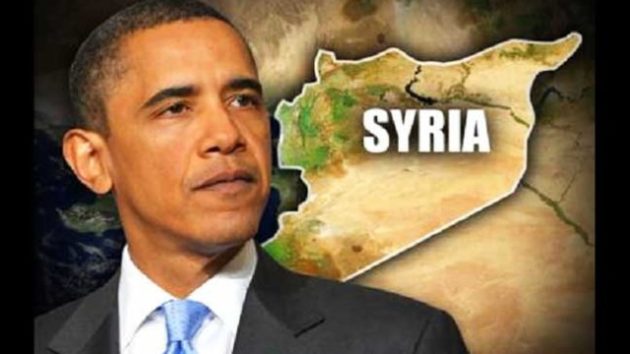The Consequences of ‘Checking Out’: America’s absent strategy as Syria collapses
The Syrian conflict has taken many unpredictable turns over its terrible four years. But the developments this week are some of the most concerning so far.
Syria has always been not only a domestic civil war but also a place where regional powers have struggled with each other to promote and prop up their own interests. This seemed to be tolerable to much of the West when the countries vying with each other in Syria were Iran, Saudi Arabia, Turkey, the Gulf States and others. But the arrival of Russia in an open, rather than covert, manner changes things completely.
Because Russia is now openly involved and engaged in seeing the civil war to the end they have always wanted, and just as Turkey has used air strikes purportedly against Isis to in fact engage in their war against the Kurdish PKK, so Russia, under the guise of pursuing Isis, has clearly been carrying out its own sectarian, pro-Assad business.
In all of this America has been not so much a bit player as an absent player. The most powerful military on earth appears to be barely semi-engaged. This is a simple result of the fact that US political will is disengaged. It does not help that some American lawmakers now propose jumping in as though out of pique – an ‘everyone else is engaged so why shouldn’t we be’ attitude. The problem is not being ‘left out’. The problem is having no strategy.
The situation we now see in Syria is a demonstration of what happens when America checks out. The one hour notice that the Russians gave the Americans before bombing spoke volumes: the diplomatic equivalent of a courtesy call. But the answer to the pile-in in Syria is not to join it to no end. The answer is to weigh up our military alternatives based on a clear set of political aims. Some Americans may be tired of being the world’s policemen. But leaving the job to the Russians is not an option.

FROM THE DIRECTOR’S DESK
It’s been a while since I have been able to say this in an international affairs context, but British pride and acknowledgement of doing the right thing have been restored this week courtesy of an extraordinary exchange between Prime Minister David Cameron and U.S. President Barack Obama at the United Nations.
Chairing the the U.N. Leaders’ Summit on Countering ISIL and Violent Extremism, Mr Obama stated “Violent extremism is not unique to any one faith, so no one should ever be profiled or targeted simply because of their faith.” Only to find that Mr Cameron was pugnacious in response, agreeing with the basic premise but then calling out the President for not naming the biggest problem in this regard today: “Barack, you are quite right, that every religion has its extremists, but we have to be frank that the biggest problem we have today is the Islamist extremist violence that has given birth to ISIL, to Al Shabaab to Al Nusra, Al Qaeda and so many other groups.”
Nor was Cameron finished there. Speaking about the linear development for those who progressed from extremism to acts of terrorism, he continued “They have extremist views and an extremist mindset before they make that final decision to be an extremist terrorist. We have to stop this process at the start, not at the end. We also need to challenge the extremist worldview right at the very start.” This even elicited a response from Obama, who agreed that “violent extremism is emerging out of an extremist worldview that has to be counteracted.”
We should not under-estimate the significance of these comments. Firstly, they indicate that the path which Mr Cameron entered on before the summer – of identifying Islamist extremism as being as much a problem of extremist ideology as extremist violence – is one that he intends to continue taking.
But that as importantly, by taking the lead so publicly on this issue when the US President demurred and then having had some impact on his thinking, Mr Cameron gives us hope that where Britain leads, the US may yet follow. Our disastrous counter-extremism policy of the mid 2000s was emulated across the Atlantic, so why not a more promising variant, particularly as a change of US administration looms in 2016?
Whatever the future, I can assure you that one thing will remain not subject to chance. Just as HJS has spent the past few years raising awareness of the threat Islamist extremism poses to our societies and worldwide, you can be certain that we will spend the next few helping those leaders determined to make policy changes to find the best way of doing so.
Dr Alan Mendoza is Executive Director of The Henry Jackson Society
Follow Alan on Twitter: @AlanMendoza
RELATED ARTICLE: The Moscow-Washington-Tehran Axis Of Evil



Leave a Reply
Want to join the discussion?Feel free to contribute!